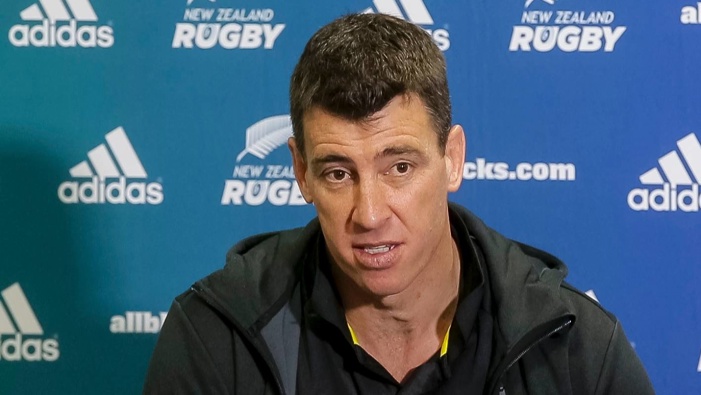New Zealand Rugby Players' Association boss Rob Nichol believes they will find an agreement with New Zealand Rugby over the Silver Lake deal soon, but some questions still need to be answered.
The disagreement between the two parties is all that is preventing the sale of 12.5 per cent of future commercial income to the US fund manager for $387m after the provincial unions unanimously agreed to the sale.
Speaking to Newstalk ZB's Martin Devlin, Nichol said there were still some sticking points between the NZRPA and NZR that were preventing a deal from being agreed upon.
"There's been a lot of narrative in the media this week and that's fine, but what we're working through is something we've been doing for 25 years in rugby," Nichol said. "It's a professional process of negotiating a collective, we got a mediator involved because we've found that incredibly useful in the past.
"We will get there. We will get an agreement, make no bones about that, and that settlement will be fair and reasonable, it will be appropriate. It will probably be one that contemplates an arrangement like Silver Lake, but also contemplates if that doesn't happen. It will work for us moving forward, it just takes a little time."
Nichol said it would "be quite nice" if the parties were able to come to an agreement next week, as after several meetings they were in the process of reporting back to their shareholders.
While player pay under the new agreement has reportedly been among the issues between the two, Nichol said that wasn't the case and the players wanted 36 per cent as they have now, but were more worried about the future of the game after a report from BDO suggested a scenario where NZR could be a loss-making venture by 2025 and living off its capital reserves if it takes the deal with Silver Lake.
"We need each other, we need the community, we need to be one, and I guess one of the things we're looking at under the Silver Lake deal is that we're bringing someone else into that partnership," Nichol said.
"It's the first time in 150 years we've contemplated doing it. In 95-96, we decided not to do it. We fought against it. We didn't follow the rest of the rugby world, and how well has that served us? This is a huge decision, and we're not going to be rushed on it.
"We're going to be methodical about asking the right questions, and when I look at the financial models associated with it and some of the risks that we talk about, that's where the rubber really hits the ground."
Take your Radio, Podcasts and Music with you










